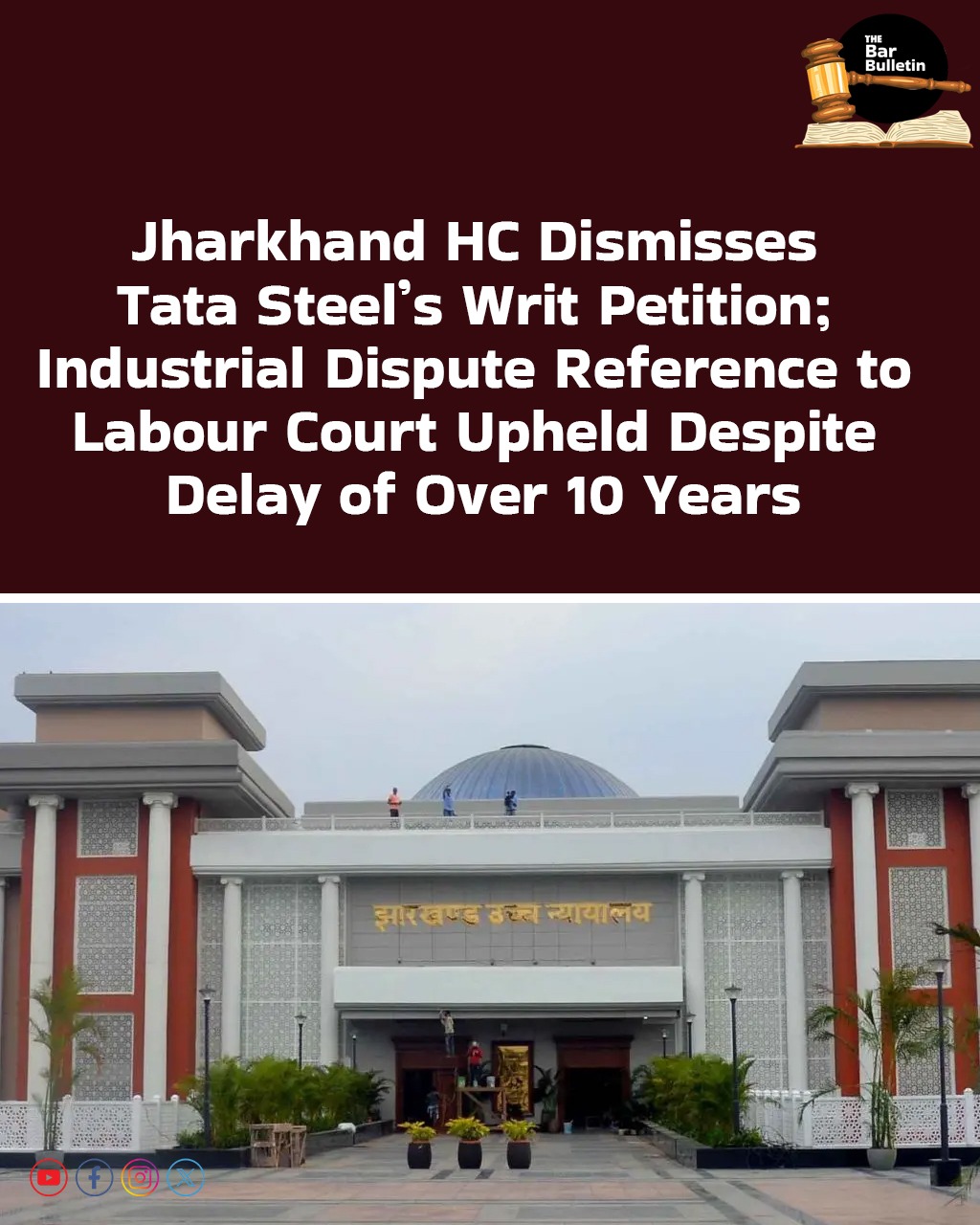The Jharkhand High Court dismissed the writ petition filed by Tata Steel, rejecting its plea to quash a government reference of an industrial dispute relating to a worker’s discharge on grounds of alleged illegality and delay.
The petitioner, Tata Steel, challenged the validity and maintainability of a notification issued by the State Government referring the dispute of its former employee regarding the justification of his termination, to the Labour Court, Jamshedpur.
The reference was made by the Governor of Jharkhand, specifying a three-month period for adjudication by the Labour Court. Tata Steel filed the writ petition immediately after receiving a notice to appear in the Labour Court.
The petitioner contended that the reference was barred by limitation since the employee was terminated in 2013 following a disciplinary enquiry for absenteeism, but the reference was made only in 2025. The petitioner sought quashing of this referral under Section 10(1)(c) of the Industrial Disputes Act, 1947, claiming the case was stale and legally unsustainable.
The Bench comprising Justice Sanjay Prasad recognized that no fixed limitation is prescribed under Section 10 of the Industrial Disputes Act for government references. It inferred that the absence of a statutory limitation allows references at any time on a bona fide dispute.
The Court observed the petitioner’s failure to contest the nature of the dispute before the Labour Court and noted that any delay does not automatically bar adjudication, especially since no evidence was shown to be lost. The Court declined to adjudicate the merits of the termination at this preliminary stage, noting that the Labour Court is the appropriate forum for such determination.
In result, the petition was dismissed and the government’s reference to the Labour Court was upheld as valid and maintainable despite the delay. The High Court held that the Labour Court must adjudicate the dispute on merits within the stipulated timeframe. The petitioner was directed to bear the costs, which were to be paid to a charitable institution.
Cases relied on:
- Raghubir Singh vs General Manager, Haryana Roadways, Hissar (2014) 10 SCC 301
- Life Insurance Corporation of India and Ors. vs Union of India and Anr. (2015) 3 AIR Jhar R 157
For the Petitioner: Mr. Raunak Sahay, Advocate
For the State: None



